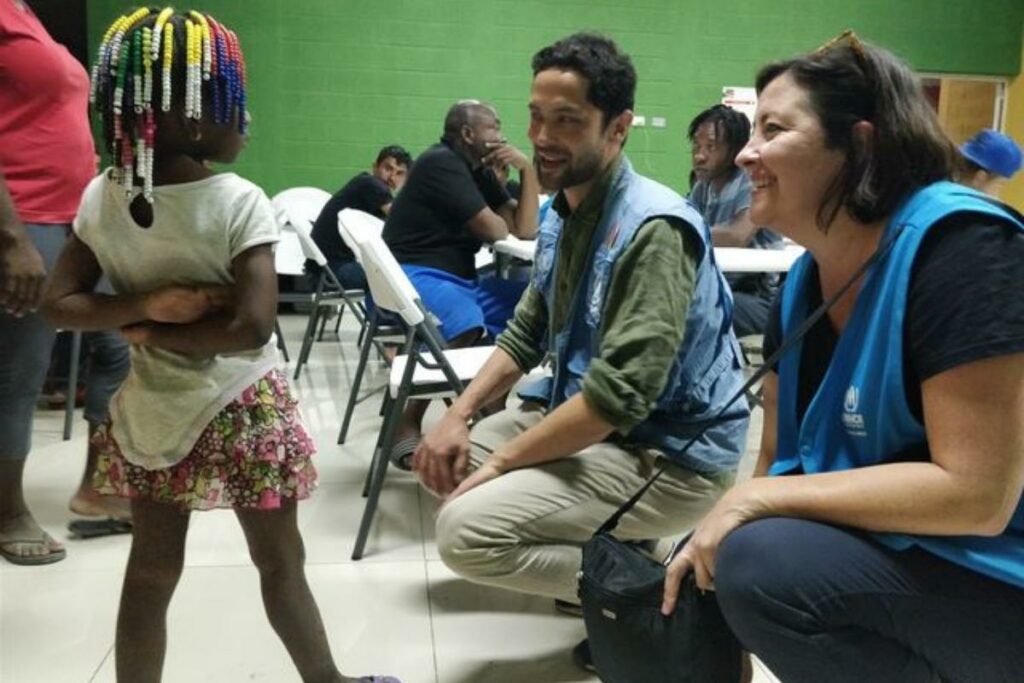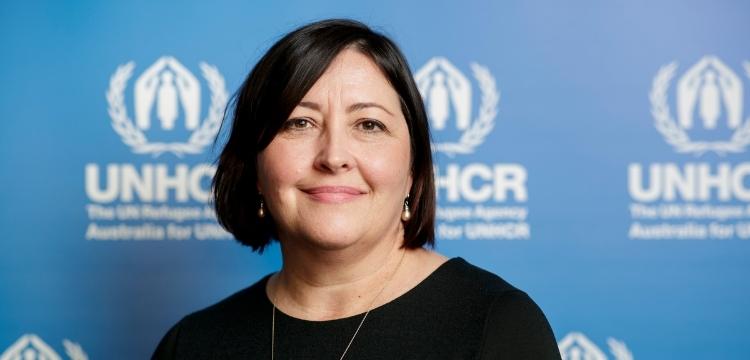Australia hosts almost 60,000 refugees and 80,000 asylum seekers. Most are from the Middle East or Asia. It’s estimated that 8,000 people are stateless.
Australia for UNCHR is a partner of UNCHR and helps raise funds to support the UN Refugee Agency’s work in countries around the world, including Afghanistan, Myanmar, Ukraine, Yemen, Syria, and Ethiopia.
Just this April to June 2022, Australia for UNCHR was able to provide support to displaced communities in the Kachin & Shan states of Myanmar through the provision of relief items, reaching 16,441 individuals. Items provided include blankets, mosquito nets, kitchen sets, jerry cans, solar lamps, and tarpaulins.
Third Sector News interviewed Trudi Mitchell, the Chief Executive Officer of Australia for UNHCR on how the organisation evolved to face unprecedented times and how she continues to motivate herself and her team to deliver globally and help more people than ever reach safety amid record displacement worldwide.
Trudi Mitchell is a speaker for Third Sector Live. Listen to her insights along with other industry leaders. Book your tickets here.
At Australia for UNHCR, Trudi has led a number of strategic and fundraising projects, expanding UNHCR’s fundraising streams. She is also a leader in the international aid sector and chairs the Emergency Action Alliance Appeals Committee – a group of 15 Australian charities working together on humanitarian projects worldwide. Trudi was also awarded FIA’s 2021 Fundraiser of the Year.

You have recently been promoted to Chief Executive Officer of Australia for UNCHR, to what experiences do you attribute to this success?
I have extensive experience in senior management having worked in a range of not-for-profit organisations. This experience spans strategy, innovation, leadership, public relations, communications, fundraising, technology and data. Prior to becoming Chief Executive Officer of Australia for UNHCR, I was the Deputy National Director for 6 years. I played an integral role in the organisation’s focus on investing in technology to improve advocacy and increase fundraising for refugees. My focus has also been on ensuring our growth is sustainable. This has given me the strong foundation to lead Australia for UNHCR, which plays a vital role in supporting the UN Refugee Agency’s life-saving work in helping people displaced from their homes due to conflict and persecution.
What motivates you to continue working to deliver humanitarian aid?
My biggest motivator has been the experience of going to the field and meeting people who have had to flee their homes and speaking to them about their stories and their hopes for the future. Their hopes are no different from many of us – safety for them and their families, opportunities to learn and give back to society and, of course, most just want to return home. I can recall meeting prospective students for an Australia for UNHCR funded Vocational Training Centre built in Kyaka II Refugee Settlement in Uganda. Their stories brought home to me the need for longer term solutions for refugees. One young man said that if he couldn’t learn a trade he would spend his life tending to the family vegetable patch. In Northern Central America I witnessed the direct protection that UNHCR was able to provide unaccompanied children fleeing the countries in the golden triangle. UNHCR’s work is on the frontline of displacement, and with the number of people displaced around the world growing to more than 100 million, the pressure on the UN Refugee Agency to provide ongoing assistance has never been greater. One in every 78 people in the world has been forced to flee – a milestone few would have expected a decade ago.
The generosity and compassion of our Australian donors keep us motivated and able to make a real difference to the lives of refugees and displaced people.
The sector is ever evolving and growing; what do you think are the current trends and opportunities for growth?
Harnessing technology including automation and data insights are areas that we will continue to focus on at Australia for UNHCR. We also feel that working in partnership with other Australian-based international aid agencies is an opportunity for growth. I represent Australia for UNHCR on the Board of the newly established Emergency Action Alliance (EAA), working with 14 other not for profits members. We come together in times of crisis overseas to raise funds quickly and efficiently. The first emergency the EAA responded to was for Ukraine and thanks to support from the Australian government, the ABC and the private sector, this appeal raised over $4mill.
What does the ideal future look like for you?
My ideal future is working with my team at Australia for UNHCR and UNHCR globally to continue to grow our positive impact on the lives of refugees. We don’t have a refugee crisis but a political one. We need political will to stop the conflict and persecution forcing people to flee their homes. We want permanent solutions for refugees and displaced people, and UNHCR has been work painstakingly with governments and partners to bring about the type of political and societal will needed for solutions. UNHCR will continue to do everything in its power to protect and support people forced to flee their homes.
More than 100,000 Australians support our work and I hope we can increase that number. No one chooses to be a refugee.
Anything you would like to highlight?
As the war in Ukraine continues, the world is waking up to the ripple effect of this conflict, which is having a huge impact on food insecurity. Climate change is also a key factor affecting global food production. In Eastern Africa, 50 million people are facing acute food insecurity. Humanitarian needs are growing fast and people’s lives are at stake.
However, UNHCR is doing much more than driving the immediate response to emergencies around the world. Long after a humanitarian emergency slips out of the news cycle, UNHCR stays and delivers for displaced people in 137 countries and territories. The average length of time a refugee spends in exile is about 20 years, which requires UNHCR to provide longer-term solutions such as shelter, healthcare, education and employment opportunities.
Lourdes Antenor is an experienced writer who specialises in the not-for-profit sector and its affiliations. She is the content producer for Third Sector News, an online knowledge-based platform for and about the Australian NFP sector.



























































































































































